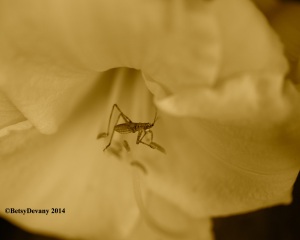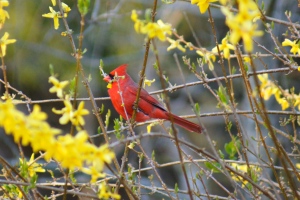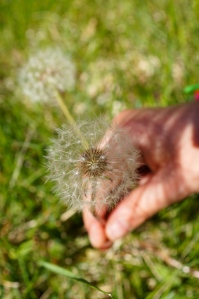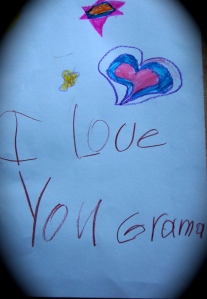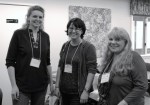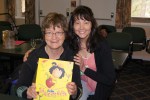A few weeks ago, I came across these painted rocks in Colchester, CT. I’d stopped at Starbucks, thinking a caramel latte would cure my blues over the national news. But the rocks are what lifted my spirits. Thank you, anonymous artist, for reaching out to strangers.
I think of these rocks often now, particularly when I’m working at the toy store, where sometimes children, teens and adults need something beyond a toy recommendation. Whether they are searching for a genuine smile, for someone to listen to their story, or to know they are not alone, I embrace these opportunities to spread kindness. And sometimes in making personal connections, a person unknowingly sheds light on my own unresolved issues, as Henry did on a muggy day in August.
Henry shuffles into the toy store and up to our wooden front counter. “I’m looking for WWI die cast planes, for someone who’ll be dead in two years.”
“I’m so sorry to hear that someone isn’t well,” I say.
“It’s not that I’m not well, I’m 84 years old, so I could die next week, or next month, you never know.” Henry offers me a playful smile that shows he enjoys teasing people.
I lead Henry to the room where we keep the collectible toy soldiers. Henry seems familiar but I don’t connect the dots until he shares more about his life. A former history teacher, with a passion for WWI, he visited Toy Soldier for the first time a year ago. “Some nice lady helped me, but it wasn’t you,” he insists, handing me a note from his wallet. The words in neat cursive say Planes that Henry Bought.
“That’s not my handwriting,” I say.
“Of course not. I wrote that. It’s the handwriting of a soon-to-be-dead old man.” He pulls out another paper with the store’s address and phone number, along with a name. My name.
“I’m Betsy.”
“You poor thing. It was you. If it wasn’t for that exhausting honey-do list I would have come sooner.”
“Honey-do list?”
“Yes. The wife’s. She’s sitting on your bench outside, probably adding to the darn list. Maybe it’s a good thing I might die next week.”
I excuse myself and step away to help other customers. Twenty minutes later, Henry is still in our soldier room, his eyes fixed on a limited edition Fokker plane.
“Sure is a beauty, but it’s expensive, and Miss Holds the Purse Strings won’t let me get it.”
I offer to take the plane out of the case to show his wife.
“Oh, god, no. I’ll just describe it to her.” Henry shuffles to the porch while I help a woman select a doll for her two-year-old daughter. After ringing up the sale, I look through the window behind me. Henry is still talking, using his arms to demonstrate the size of the plane to a wife who now seems primed for a nap.
I step out to say hi. “Would you like to see a picture of the plane?”
“No. I don’t need to see it. What I need is for him to stop talking about the darn plane.” She glances up at her husband. “Do you want the plane, Henry?”
Henry looks at me, like I’m supposed to answer for him.
“Do you want the plane?” I ask Henry.
He nods, then shuffles after me. Back into the store, back to the glass case. I slide the heavy metal Fokker of its shelf and hand it to Henry. His eyes glisten. “Can you imagine flying a plane like that, without a cockpit cover?” He continues to chat as we walk to the front counter where I then carefully secure the plane in its limited edition box.
What looks like a five-year-old smile erases from Henry’s lined face. “God forgive me for what I’m about to do.” He pulls out a charge card from his wallet.
“Forgive you for what?”
“Buying the plane.” Henry’s eyes water. “I don’t deserve it.”
Henry’s words, the image of him cradling the plane in his arms, bring me back to my mother, back to her favorite brown leather shoes.
It was the last week in April, and my mother had just been admitted to Hospice. Rather than discuss what that meant, she wanted to talk about her shoes. “They’re almost worn out, I need to replace them. But they’re too expensive.” Even though she could no longer walk, we ordered replacements with expedited shipping. Two days later, my mother smiled, cradling the new shoes in her lap. “Just what I wanted,” she’d said before shifting her legs over the side of the hospital bed and asking for the shoes to be put on her feet.
And then she insisted the shoes be removed from her feet and returned to their box. “I’ll wear them when my old pair is completely worn out.”
My mother believed she would walk again.
My mother believed she had longer to live.
My mother thought she didn’t deserve a new pair of shoes.
The box sat in the corner of her room until I shoved it in the closet so I wouldn’t see it when I visited her each day. Four weeks later, the shoes were sent back, the day after her assisted living apartment was emptied.
And then I tried to forget about the shoes.
And I tried to forget that my mother died two days before the first anniversary of my husband’s death from ALS.
I tried to forget the memories and images that accompany watching loved ones suffer through unthinkable and cruel diseases.
But Henry unknowingly triggers these memories, and how I’ve avoided facing the truth of all that has happened these past two years.
“If you were me, what would you do?” Henry is wrestling over whether to buy the plane or not.
I push back tears, wishing I’d made my mother wear the new shoes, when Henry locks eyes with me.
I am at a loss for words. Breathe, I tell myself, picturing the yellow letters on the purple rock.
“Put the plane back on the shelf,” he says. “I’m sorry to have bothered you.”
“You deserve the plane, Henry.”
A minute later, Henry inches toward our front door, a large shopping bag in his right hand. He is almost out of sight when I call him back. “Henry, can you promise me something? Can you promise to take the plane out of the box when you get home? Can you promise me you’ll enjoy having the plane?”
Across the display of card games he extends a shaky hand. I take it. “I promise,” he says with a squeeze.
Henry shuffles down our front path, his wife following behind. He stops and reaches back for her. She takes his left hand with a smile.
I do not know if I will ever see Henry again, but I will never forget him. I will never forget holding my husband’s hand when we’d walk through Olde Mistick Village. I will never forget holding my mother’s hand when she took her last breath on May 30th this year.
And I, too, will keep the promise I made to both of them.
I begin today.
I begin with writing this post.





